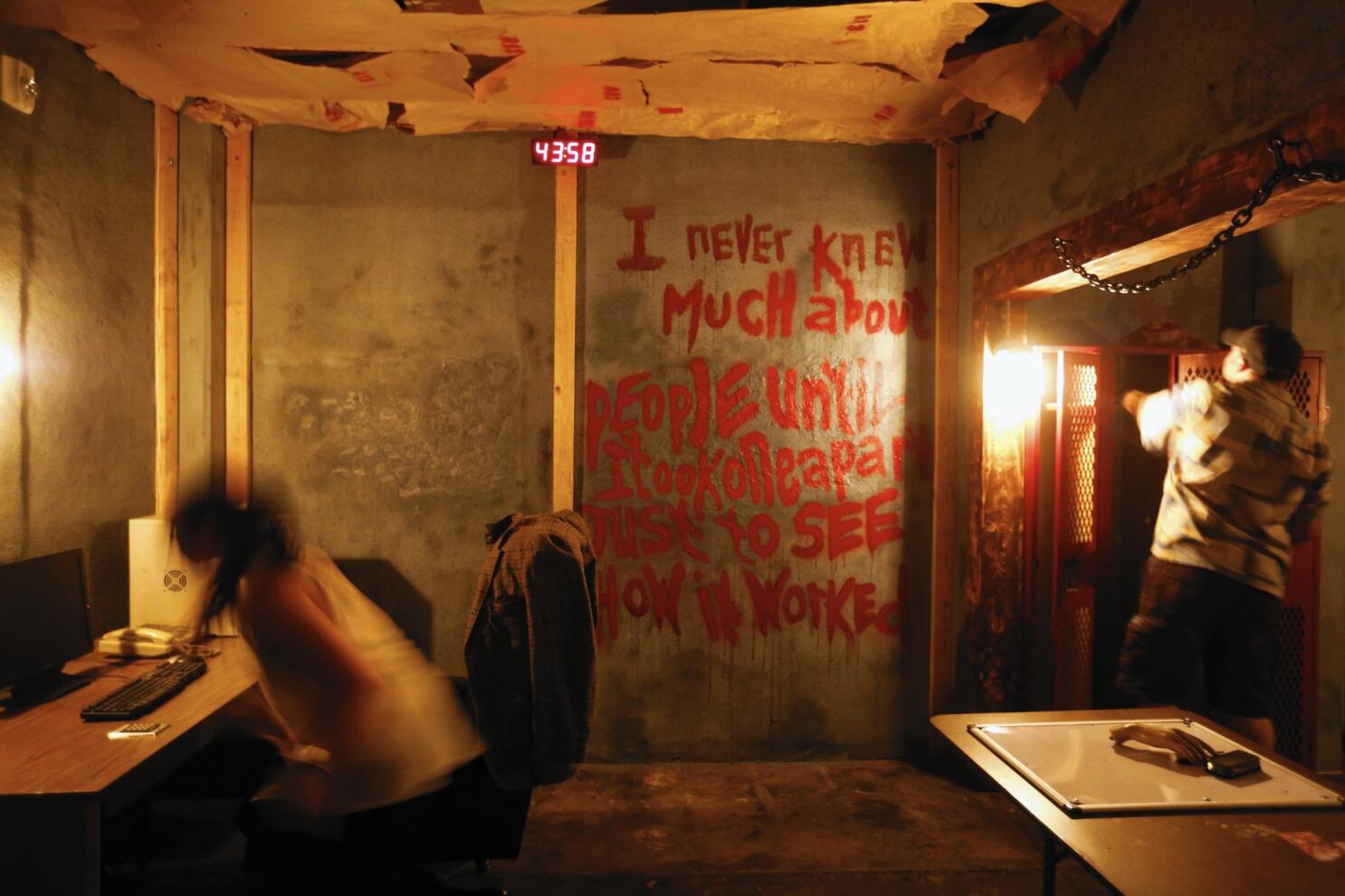Minneapolis Escape Room-- Exciting Problem Obstacles for All Ages
Minneapolis Escape Room-- Exciting Problem Obstacles for All Ages
Blog Article
Group Techniques: Just How to Team up Efficiently in a Getaway Space
Teams should proactively listen to each participant's understandings, appoint roles that align with specific toughness, and maintain normal check-ins to make certain focus and prevent redundancy. By cultivating an environment that values communication and adaptability, groups can substantially enhance their efficiency and success prices.
Establish Clear Communication

To assist in clear interaction, it is vital to mark a central point of call for information circulation. This function involves summarizing findings and suggested methods to make sure everyone remains on the very same web page. In addition, adopting an organized method to discussions can avoid chaotic exchanges. For example, short, concentrated updates from each group member can maintain the group informed without overwhelming them with information.

Appoint Duties Purposefully
While clear communication sets the foundation for effective teamwork, appointing duties purposefully makes sure that each employee's strengths are utilized efficiently. In a getaway area scenario, the time-sensitive and complicated nature of obstacles necessitates an efficient strategy to job delegation. By determining and leveraging specific competencies, groups can optimize their problem-solving capacities and enhance general performance.
Someone with an eager eye for detail might stand out in discovering surprise objects, while a sensible thinker could be much better matched to fixing puzzles. This function frequently calls for strong organizational and interpersonal skills.
Second, make sure that duties are versatile and versatile. As new obstacles emerge, the team needs to have the ability to pivot, reapportioning jobs as needed. This versatility aids preserve energy and prevents bottlenecks that might occur as a result of inflexible role jobs.
Eventually, a tactical method to duty assignment not just takes full advantage of the strengths of each team member but likewise promotes a cohesive setting, driving the group towards an effective getaway.
Use Diverse Skills
Recognizing and using the varied abilities within your team can significantly elevate your efficiency in an escape space. Each staff member brings distinct toughness to the table, and efficiently leveraging these capabilities can accelerate analytic and enhance total effectiveness. A group participant with solid analytical skills could stand out at Discover More decoding complex codes or patterns, while an additional with keen observational capacities might promptly spot concealed hints that others may neglect.
Reliable communication is key to using these varied abilities. Encourage group participants to voice their insights and concepts immediately, ensuring that all possible options are taken into consideration. This inclusive method cultivates a vibrant atmosphere where creativity and important reasoning can thrive. Furthermore, appointing jobs that line up with each participant's strengths can stop bottlenecks and ensure that progression is constant.
Additionally, variety in skills usually converts to variety in believing styles, which is important in a getaway area setup. While some obstacles might call for sensible reasoning and accuracy, others may benefit from creative and association of ideas. By recognizing and leveraging this diversity, groups can attend to a broader array of challenges better, thus enhancing their possibilities of a successful getaway.
Manage Time Properly

First, assign preliminary minutes for a fast survey of the room. Determine visible problems and divide tasks based upon staff member' strengths, ensuring that no one is idle. Establish interior time checkpoints to assess progression occasionally; as Learn More Here an example, objective to have half the puzzles resolved by the mid-point of the game. This method can assist keep the group focused and avoid time from escaping undetected.
In addition, prevent tunnel vision. If a challenge is taking also long, turn team members or go on to an additional obstacle, returning later on with fresh perspectives. Interaction is paramount-- keep every person updated on addressed puzzles and staying tasks to prevent redundant initiatives.
Lastly, use any type of tips or ideas moderately but purposefully - best escape room. Understanding when to request assistance can save important time. By sticking to these time monitoring principles, groups can significantly boost their possibilities of a successful and enjoyable retreat room experience
Debrief and Mirror
Reflection is an essential aspect of team growth and improvement in the context of retreat spaces. When the difficulty is completed, whether effectively or not, it is essential for the group to participate in a structured debriefing session. This process allows team members to analyze their performance, recognize strengths, and identify locations for renovation.
Start the debrief by reviewing what worked out. Highlight specific circumstances of efficient interaction, analytic, and cooperation. Acknowledging these positive actions enhances them and encourages their repeating in future obstacles.
Review moments of confusion, miscommunication, or inefficient approaches. Motivate an open and constructive discussion where group participants can share their perspectives without concern of objection.
Final Thought
Finally, effective collaboration in a getaway space is predicated upon clear interaction, tactical function assignments, the effective utilization of varied abilities, and efficient time monitoring. Normal check-ins and organized debriefings are important for maintaining focus and cultivating constant enhancement. By producing a natural and flexible team atmosphere, the possibility of successfully solving puzzles and achieving the objective of escaping the space is considerably improved. This technique not just guarantees success however also promotes cumulative development and discovering.
Report this page